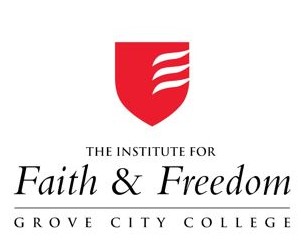GUEST BLOG BY DIANE MEDVED: Do We Need to End Inequality? For People? For Nations?

The buzz word “inequality” has weirdly become a rallying cry for the far left in America.
Our nation embraces equality, as in “all men are created equal, endowed by their Creator with certain unalienable rights…” Both political parties love that phrase. The issue is whether all men and women should remain equal and develop equally, and whether it’s within government’s scope to assure that outcome.
Minimum wage debates express the notion that free markets don’t adequately offer fair compensation; that the government must therefore make laws requiring a floor salary for every and any type of work. Each state has its own minimum wage.
Now, we’ve extended that to make the floor salary a federal minimum, rather than a state issue that can respond to local circumstances. Somehow, Pres. Obama believes that $10.10 per hour provides a comparable “living wage” in both New York City and Memphis, Tennessee.
This is a huge debate, one we in Seattle endured en route to the newly council-approved $15 minimum wage, successfully championed by socialist City Councilwoman Kshama Sawant.
The trendy term “inequality” assumes socialistic underpinnings–but rather than delve into them, I’d like you to think about inequality in the shockingly novel way it’s now being internationally applied.
If we should strive for all citizens within our country to have financial “equality” or at least a comparable level of comfort in life, what about nations? Do all countries deserve equality, too? Given that the U.S. has so much, should people in another nation suffer just because that unfortunate land has a corrupt government and a culture of bribery and cruelty?
Apparently the Presidents of El Salvador, Honduras and Guatemala don’t think so. With 57,000 unaccompanied children since October sent to the U.S. with coyotes (smugglers) by their fearful and hopeful parents, leaders of their home countries say our tempting plenty and opportunity are to blame.
Honduras President Juan Orlando Hernandez told the Center for Strategic and International Studies that conniving coyotes “peddle a mistake…a totally wrong interpretation to the parents of these children saying ‘You can get your kids into the U.S., we can do it for you.’” The lure is our safety and economic opportunity–which we unfairly enjoy while they suffer.
”We will not be able to solve this problem unless we go to the root, and this requires an integral task, one that is based on the principle of shared responsibility,” Hernandez declared. “The U.S.A. is responsible, and we are responsible, and we are facing up to our responsibility.” The implication being that we, the United States, are not.
If only there were equality among nations, Central American parents fearful of violent gangs wouldn’t have to send their offspring far away, alone. If only they could go to school, choose a college, and have a chance for good jobs or to start businesses, their people would keep their progeny at home. We have all these things in the U.S., and they don’t. We must therefore “share responsibility” for the influx of people who risk all, including their lives, for freedom.
Our nation has been blessed by God, but also blessed in the self-selecting populations who came across oceans because they had the courage to face even greater uncertainty and danger for the chance of a better life, spiritually or economically. The personality traits of such people, I believe, shaped our country’s success. Our nation’s founding populations rooted their entrepreneurial efforts in biblical values and ethics, which underpinned both law and behavior.
Are the governments and populations of Central American countries behaving in their own lands similarly to the builders and continued leaders of the United States? If you believe in “shared responsibility” and want to stop inequality internationally, it doesn’t matter. One nation is “as good as” another, and the successful owe the chaotic some of what they’ve built to “even the playing field” and “spread the wealth.”
Does this relative morality sound as ridiculous to you as it does to me? The problems for these countries are complex, but a deeply-rooted system of corruption, and citizens so adapted to it that they perpetrate it so as to at least reap some advantage from it, dominate the list. The proliferation of drug thugs and gangs’ power apparently arose over the past two decades, but devastating civil conflicts with warlords intermittently assuming power, made survival the priority rather than adherence to standards of ethics. Whatever analysis you choose, not all countries can be, or deserve to be equally successful.
Those individuals or nations who place honorable values above personal gain are the sources of freedom, order and opportunity that attract and deserve support. I would have liked to hear the Central American presidents address these underlying issues rather than insisting that the United States, object of desperate desire for so many immigrants, is at fault and owes them redress.
This column appears on Diane Medved’s blog, Searching for Bright Light.




















